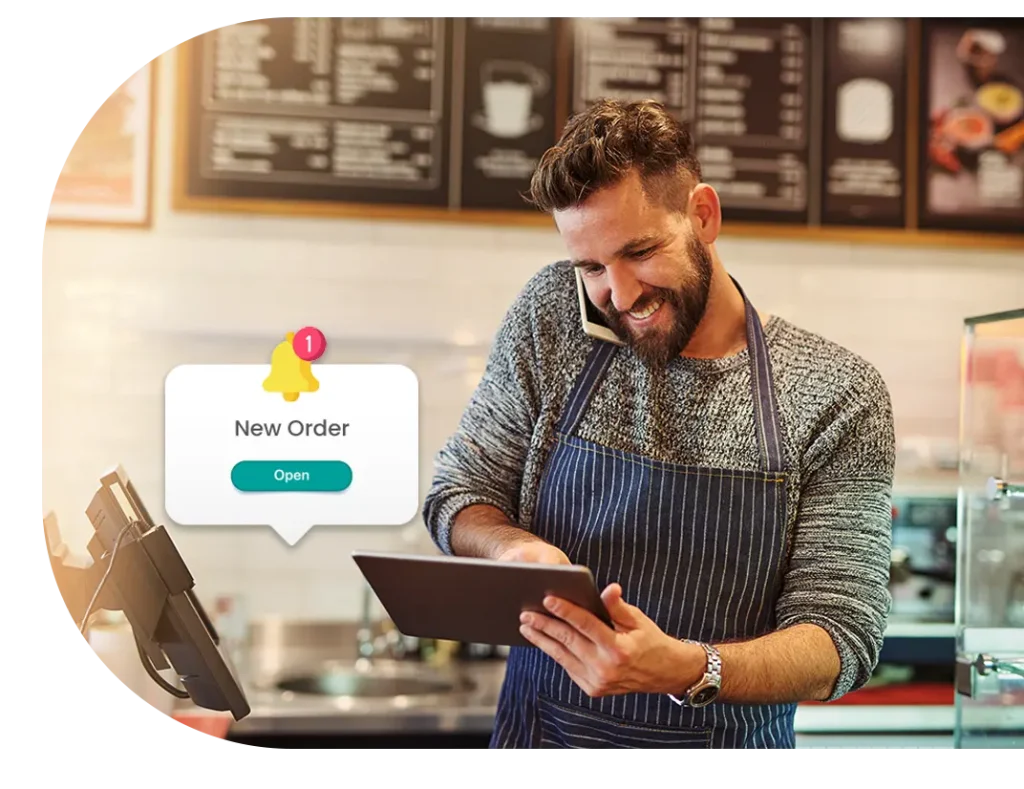
Brussels Approves Naspers Takeover of Just Eat Takeaway But Orders Sale of Delivery Hero Shares
Brussels Draws Battle Lines: The €4.1 Billion Deal That Rewrites Europe's Digital Dining Wars
BRUSSELS — European regulators just fired the opening salvo in what may become the defining battle over digital market concentration. Their weapon of choice: forcing one of the world's largest technology investors to dramatically reduce its influence across Europe's food delivery empire.

The European Commission's conditional approval of Naspers' €4.1 billion acquisition of Just Eat Takeaway.com represents far more than a routine merger review. It signals a fundamental shift in how Brussels views cross-ownership in concentrated digital markets—one that could reshape investment strategies across the continent's most lucrative tech sectors.
At stake is control over the applications that determine what millions of Europeans eat each night, and who profits from those choices.
The Quiet Empire Under Scrutiny
Through its investment arm Prosus, Naspers had assembled what regulators viewed as a shadow empire across Europe's meal delivery landscape. Beyond the headline acquisition of Just Eat Takeaway.com—operator of familiar brands like Just Eat, Lieferando, and Takeaway.com—the South African technology giant holds significant stakes in Delivery Hero, the powerhouse behind Glovo, Foodora, and efood across Austria, Bulgaria, Italy, Poland, and Spain.
Naspers/Prosus's cross-ownership in the European food delivery market prior to the EC ruling.
| Investing Entity | Investee Company | Ownership Stake (Prior to EC Ruling) |
|---|---|---|
| Naspers (through Prosus) | Just Eat Takeaway.com | Acquired the company in a €4.1 billion deal. |
| Naspers (through Prosus) | Delivery Hero | Held a 27.4% stake. |
| Just Eat Takeaway.com | - | - |
| Delivery Hero | - | - |
This cross-ownership structure would have granted Naspers unprecedented influence over two of Europe's dominant food delivery networks, potentially controlling the commercial dynamics in dozens of major cities from Berlin to Barcelona.
"The Commission identified a risk that common ownership could soften competitive intensity across city-level markets where just two or three platforms typically operate," explained a senior EU competition official, speaking on condition of anonymity due to the sensitive nature of ongoing enforcement actions.
The remedy demanded by Brussels cuts to the heart of modern digital market concentration: Naspers must sell down its Delivery Hero shareholding to "a very low percentage" within 12 months while implementing strict governance firewalls between its portfolio companies.
When Algorithms Dance in Formation
The regulatory intervention gains particular significance against the backdrop of June 2025's €329 million cartel fine levied against Delivery Hero and Glovo. That enforcement action provided concrete evidence that coordination risks in food delivery markets extend beyond theoretical concerns into documented price manipulation.
The cartel case revealed how dominant platforms can align on commission structures and market division strategies, effectively transforming competitive markets into profit-maximizing oligopolies. For restaurants operating on razor-thin margins, the difference between competitive and coordinated pricing can determine survival.

"The fine demonstrated that these platforms have both the capability and willingness to coordinate market behavior when regulatory oversight is insufficient," noted a competition economist familiar with the case proceedings. "Cross-ownership through common investors creates additional vectors for such coordination, even when not explicitly intended."
This enforcement history transformed what might have been routine merger review into a template for addressing structural competition concerns in digital platform markets.
The Theory of Harm from Common Ownership posits that when large institutional investors own significant stakes in multiple competing firms within the same industry, it can soften competition. Because these common owners benefit from the overall profitability of the industry rather than one firm succeeding at another's expense, it may disincentivize aggressive competition and lead to tacit collusion, resulting in higher prices for consumers.
The Phase-One Precedent
Veteran Brussels observers describe the Commission's approach as unusually aggressive for a Phase-I review. Typically, structural remedies requiring asset divestments emerge from lengthy Phase-II investigations involving detailed market analysis and stakeholder consultation.
The swift imposition of meaningful ownership constraints signals regulatory confidence in theories of competitive harm related to common ownership—theories that have gained academic support but faced implementation challenges in enforcement contexts.
"Demanding structural separation at Phase-I indicates the Commission views cross-ownership risks as sufficiently clear and immediate to justify expedited intervention," observed a former DG Competition official now advising technology companies on merger strategy. "This approach may become the new baseline for reviewing investments in concentrated digital markets."
The precedent extends beyond food delivery into adjacent sectors where similar competitive dynamics prevail: quick commerce, mobility platforms, and digital marketplaces where city-level competition typically involves two to three dominant players.
Market Mechanics Under Pressure

Europe's food delivery sector operates through a complex ecosystem where small changes in competitive intensity produce outsized effects on pricing and service quality. Restaurants typically face commission rates ranging from 15% to 35% of order value, while consumers navigate delivery fees, service charges, and subscription programs designed to capture lifetime value.
Typical commission rates charged to restaurants by major food delivery platforms, which can significantly impact small business profitability.
| Platform | Service Type | Commission Fee Range | Notes |
|---|---|---|---|
| DoorDash | Marketplace Delivery | 15% - 30% | Rates vary based on the partnership plan chosen by the restaurant. |
| Marketplace Pickup | 6% | A commission fee applies to orders customers place through the app and pick up themselves. | |
| Online Ordering | 0% + processing fee | For orders through the restaurant's own website/app, a payment processing fee of 2.9% + $0.30 per order applies. | |
| Uber Eats | Delivery Orders | 15% - 30% | Different plans (Lite, Plus, Premium) offer varying levels of service and visibility for different commission rates. |
| Pickup Orders | 6% - 15% | The fee for customers ordering ahead for pickup varies depending on the plan. | |
| Grubhub | Delivery Orders | 15% - 30%+ | This includes a marketing commission (5-20%) and a delivery commission (10%). Additional fees for marketing and promotions can increase the total cost. |
| Self-Delivery Orders | 5% - 20% | Restaurants using their own drivers pay the marketing commission rate. | |
| Processing Fee | ~3.05% + $0.30 | An additional fee is charged for payment processing. |
When platforms compete aggressively, these costs moderate through promotional campaigns and reduced commission structures. When competition softens, both restaurants and consumers face higher effective costs as platforms optimize for profitability rather than market share.
The remedy's impact will likely manifest first in major metropolitan areas where Just Eat Takeaway.com and Delivery Hero brands directly compete. Cities like Berlin, Madrid, and Milan—where both platform ecosystems maintain significant presence—may experience intensified promotional activity as independent competitive strategies replace potentially coordinated approaches.
"Expect promotional intensity to increase in overlap markets as platforms can no longer rely on implicit coordination through common ownership structures," predicted a European technology sector analyst. "This competitive pressure should benefit both restaurants through lower commission negotiations and consumers through enhanced promotional offerings."
Capital Market Recalibration
The Commission's intervention creates immediate implications for private equity and venture capital strategies across European technology investments. The forced sell-down of Delivery Hero shares represents not just a one-time portfolio adjustment, but a signal that cross-ownership strategies may face increasing regulatory scrutiny.
Investment firms constructing portfolios across competing platforms must now account for potential regulatory intervention demanding structural separation. This risk premium could increase capital costs for technology companies in concentrated markets while favoring investments with clearer competitive positioning.
"Smart money will increasingly favor clean cap tables in digital platform investments," suggested a partner at a prominent European venture capital firm. "The regulatory risk of cross-ownership now clearly outweighs potential portfolio synergies in concentrated markets."
The sell-down mechanics also create potential market opportunities. If executed through block trades rather than gradual market sales, sophisticated investors may find attractive entry points into quality assets at temporarily discounted valuations.
The Investment Landscape Ahead
For investors analyzing European food delivery markets, the Commission's decision creates both risk mitigation opportunities and strategic clarity. Platforms with consolidated ownership structures and strong city-level market positions should benefit from reduced coordination risks among competitors.
The regulatory intervention also accelerates evolution toward diversified revenue models beyond traditional delivery commissions. Advertising services, merchant software solutions, and embedded financial services become increasingly important as commission rate pressure intensifies through enhanced competition.

"Platforms that successfully transition toward advertising-driven revenue models will demonstrate superior resilience against both competitive pressure and regulatory intervention," noted a senior equity analyst covering European technology stocks. "The winners will be those that leverage their merchant relationships and consumer data into higher-margin service offerings."
Market participants should monitor commission rate trends in major European cities over the coming quarters. Sustained downward pressure on effective commission rates would validate regulatory theories while creating profit margin challenges for platform operators.
Broader Implications for Digital Markets
The Just Eat Takeaway.com decision establishes important precedent for how European regulators will approach common ownership issues across digital platform sectors. Similar scrutiny may extend to ride-sharing, quick commerce, digital marketplaces, and other technology sectors characterized by city-level competitive dynamics and high market concentration.
Technology investors and platform companies should anticipate enhanced due diligence requirements around cross-ownership structures in future transaction reviews. The Commission has demonstrated willingness to impose meaningful structural constraints to preserve competitive market dynamics, even when traditional market definition approaches might not capture relevant competitive concerns.
As European digital markets continue maturing toward oligopolistic structures, regulatory intervention becomes an increasingly important factor in shaping long-term competitive positioning and investment returns.
Investment Disclaimer: This analysis is based on current market data and regulatory developments. Past performance does not guarantee future results. Investors should consult financial advisors for personalized investment guidance, as market conditions and regulatory frameworks may evolve rapidly in digital platform sectors.